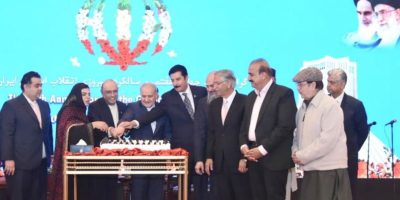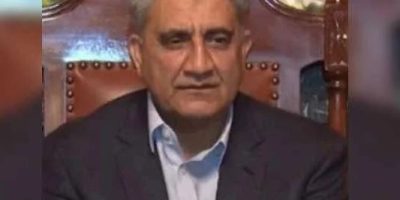UAE’s National Policies against COVID-19

Dr Mehmood Ul Hassan Khan
It is one of a few countries that have taken systematic and result oriented actions to combat the economic fallout this pandemic will certainly create. The country’s support for small and medium-sized enterprises (SMEs) should prompt the rest of the world to navigate these trying circumstances properly
The United Arab Emirates (UAE) being the 2nd largest economy of the Gulf Cooperation Council (GCC) and Middle East and North Africa (MENA) has now become the role model for others in the fight against COVID-19. The government of UAE has announced economic package of approximately AED 26.5 billion ($ 7.2 billion or 2 percent of GDP) for various sectors.
The UAE’s visionary leadership is taking all possible measures to boost the morale of the business community in the UAE. Its latest decision to step up precautionary measures to contain the impact of the Covid-19 pandemic is aimed to protecting people’s health and safety and ensuring business continuity at all sectors. The country’s visionary leadership is positively responding to the challenges with dignity and resilience.
UAE economic package included AED 16 ($4.4 billion) approved by the federal government to support the private sector by decreasing numerous government charges and speeding-up existing mega infrastructure projects; AED 1.5 billion ($0.4 billion by the government of Dubai to reduce government fees, provide additional water and electricity subsidies, and simplify business procedures; and AED 9 billion ($2.5 billion) announced by the government of Abu Dhabi as part of the ongoing “Ghadan-21” fiscal stimulus program. The new economic initiatives provided for water and electricity subsidies as well as credit guarantees and liquidity support to small and medium-sized enterprises. Moreover, the government of Abu Dhabi has announced a reduction or suspension of various government fees and penalties, as well as a rebate on commercial lease payments in the tourism and hospitality sectors.
The UAE government have announced and implemented several interconnected and interdependent measures to limit the spread of the COVID-19 virus, including closure of schools, nurseries, shopping malls, parks restaurants, and various tourist attractions. National Epidemic Control Plan was also announced and imposed effective travel restrictions suspension of international flights, suspension of prayers at mosques and other large gatherings, and enacted tele-working arrangements in government offices.
UAE has established a number of preventative measures, such as localized quarantines and airport screenings. Hand sanitizers are now in all hotels, government agencies are advised to interact online instead of through face-to-face meetings, and a pilot program has already been started in government schools to teach via distance learning. The Emirates have also acted beyond their borders recently, airlifting a group of Yemeni students from Wuhan, China the virus’s epicenter.
Moreover, it has increased testing and scaled up disinfection efforts, established a dedicated task force to ensure uninterrupted supply of consumer goods and prevent manipulative pricing practices, and launched remote learning initiative to ensure continuity of education.
The UAE leadership continues to take numerous integrated supportive measures that would provide banking and financial liquidity for national business sustainability and growth opportunities during the ongoing infectious COVID-19.
The Central Bank of the UAE (CBUAE) has doubled the size of its stimulus package to Dh256 billion ($70 billion or 20% of GDP) package which included various diversified but integrated measures and allowed banks and finance companies in the country to extend deferrals of principal and interest payments to their customers until December 31, 2020.
The Central Bank of the UAE (CBUAE) has lowered its policy interest rate twice by a combined 125 basis points so far this year. On March 15, the Central Bank had announced a Dh100 billion stimulus package, which allowed banks to grant temporary relief on retail and business clients’ for loans payment of up to six months.
It reduced banks’ required reserve requirements from 14% to 7% which increased liquidity in banking sector and mitigated the impact of COVID-19. It will release Dh61 billion additional liquidity for the banking sector, zero-interest rate collateralized loans to banks (AED 50 billion), allowing the use of banks’ excess capital buffers (AED 50 billion), 15-25 percent reduction in provisioning for SME loans, increase of loan to value ratio for first-time home buyers by 5 percentage points, limiting bank fees for SMEs, waiver of all payment service fees charged by CBUAE for six months, raising the limit on banks’ exposure to the real estate sector from to 30% of risk-weighted assets, subject to adequate provisioning and allowing banks to defer loan repayments till December 31, 2020
UAE has been helping the government of Pakistan in its fight against coronavirus (COVID-19) pandemic as second batch of eleven ton of medical and supplies handed over to Pakistan authorities. The UAE is the second country after China that has been providing assistance to Pakistan continuously and in constant contact with the government.
The United Arab Emirates (UAE) Ambassador for Pakistan Hamad Obaid Ibrahim Salem Al-Zaabi said that UAE is the champion and role model of humanitarian assistance in the world. It is one the main pillars of its foreign policy too he added.
Hamad Obaid Ibrahim Salem Al-Zaabi said that the UAE leadership including President Khalifa bin Zayed bin Sultan Al-Nahyan and Crown Prince of the Emirate of Abu Dhabi and Deputy Supreme Commander of the UAE Armed Forces Sheikh Muhammad bin Zayed Al Nahyan taking personal interest in the well-being of the people of Pakistan.
The ambassador said that more aid is in the pipeline and his government is watching the situation prevailing in Pakistan and whenever this country will need, the UAE government would provide the support.
He said that the second batch of 11 tons of medical aid supplies provided by the UAE government to people of Pakistan to combat the COVID-19. The UAE ambassador stated that the arrival of the second batch of medical aid for Pakistan confirms the commitment of UAE and its leadership to stand by the people of Pakistan in these exceptional circumstances going through the world.
He said that the second phase of medical assistance to Pakistan is a pioneering model and a realistic evidence of the success of humanitarian efforts of the UAE leadership in their quest to provide support and assistance to the friendly people of Pakistani, which is an established approach in foreign policy since the era of founding father late Sheikh Zayed bin Sultan Al Nahyan (May Allah bless his soul) and continued and developed in the era of HH Sheikh Khalifa bin Zayed Al Nahyan, the President of UAE.
He reminded that bilateral relations between Pakistan and the UAE are based on mutual affinity and respect, and these ties has flourished to partnerships in many fields, stressing that friendship and close linkages between the two countries is a key element of this partnership.
It is obvious that the backbone of the UAE’s response to the Covid-19 pandemic is derived from its comprehensive public health-care system which includes testing (UAE Ministry of Health and Prevention claims 2nd position in the world for the number of COVID-19 tests conducted so far. The ministry has said it has carried out more than 220,000 laboratory tests across the UAE for COVID-19. It number is equivalent to 22,900 tests per a million people the second highest in the world), hospital treatment and recovery programs are covered by Sheikh Mohammed bin Zayed’s health care program. A manageable health-care and economic situation has allowed the UAE to go a step further and provide humanitarian missions to areas outside its own borders something that the world’s most powerful nations have been unable to perform.
Strong political commitment, immaculate governance and delivery system, optimal utilization of Artificial Intelligence Technologies (AITs), economic bailout package, adequate financial measures and last but not least, immense social security programs proved effective in UAE’s fight against COVID-19.
It is one of a few countries that have taken systematic and result oriented actions to combat the economic fallout this pandemic will certainly create. The country’s support for small and medium-sized enterprises (SMEs) should prompt the rest of the world to navigate these trying circumstances properly.
Related News

President warns escalation involving Iran could destabilize region
DNA ISLAMABAD, President Asif Ali Zardari on Wednesday welcomed the efforts aimed at easing tensionRead More

Ex-COAS Bajwa admitted to ICU
News Desk RAWALPINDI: Former army chief Gen (retd) Qamar Javed Bajwa was admitted to theRead More


Comments are Closed